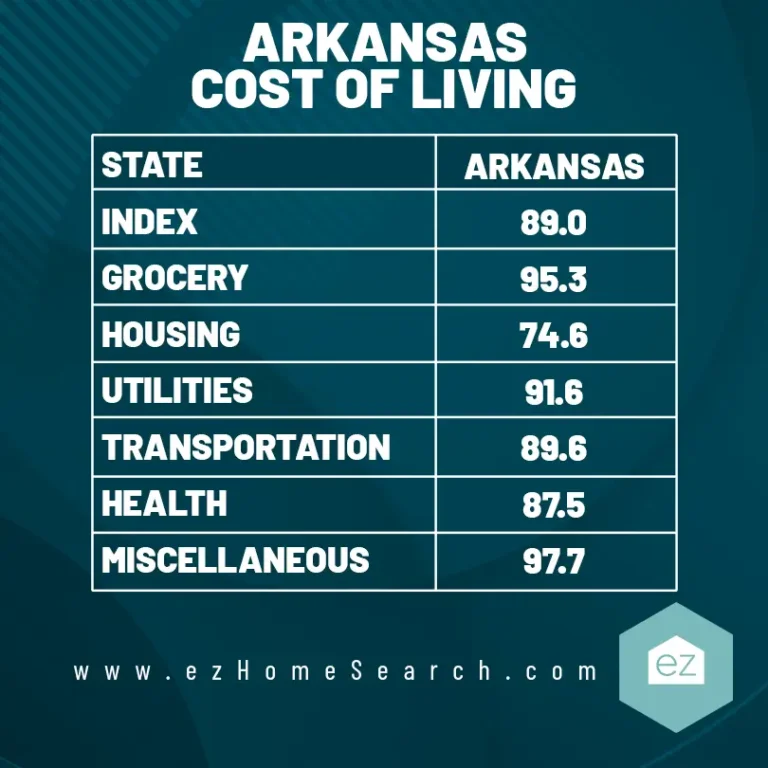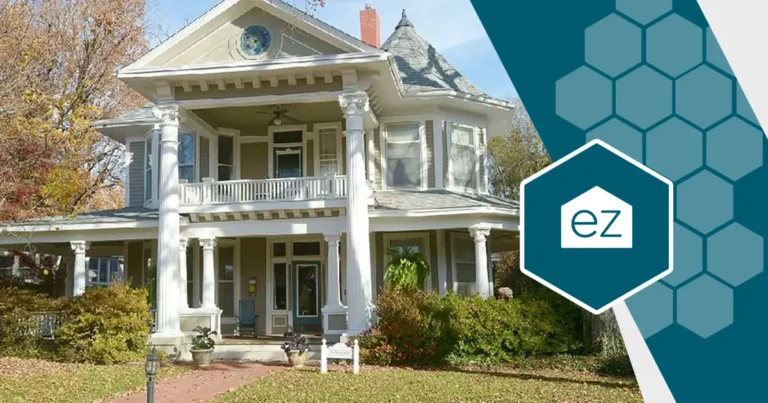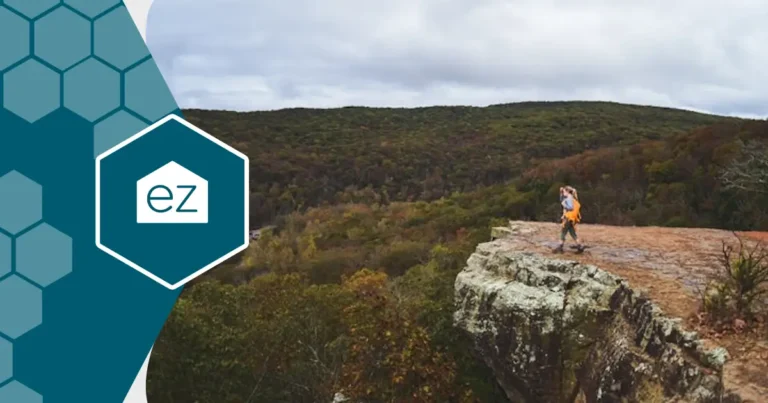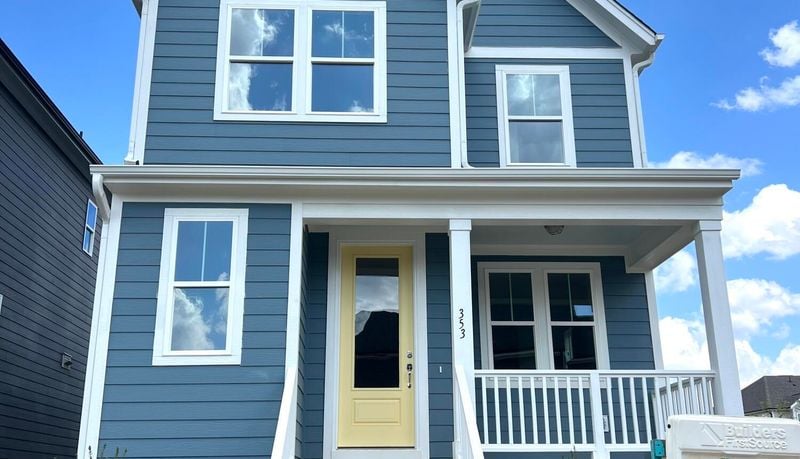Your EZ Guide to Moving to Arkansas
Looking for a more “Natural State?” Then you can’t get much better than Arkansas, which is actually nicknamed “Natural State.” Its wealth lies in stunning landscapes, energetic mid-size cities, and cozy small towns. The extra-friendly people and low costs are just the cream of the cake! Learn about what awaits you in moving to Arkansas.

About Arkansas
Why is this the “Natural State?” Take a quick drive around, and you’ll get the answer. Rugged Ozark peaks and valleys give way to natural hot springs and the mighty Mississippi waters. Get lost in expansive forests, protected wetlands, and wide open spaces as vast as the sky.
Arkansas’s natural abundance means people have long called it home. Indigenous groups like the Caddo, Quapaw, Osage, and Cherokee had sprawling communities and hunting grounds here. Later, the Spanish and French claimed its lands before joining the US as part of the Louisiana Purchase in 1803. Settlers quickly began moving into the new territory. Some passed through westward, while others saw the fertile farmland and decided to put down roots. That’s how places like Little Rock, the territorial capital, formed.
Arkansas became the 25th state in 1836 but joined the Confederate side in the American Civil War. The state experienced conflict over the Mississippi waters’ control and the Union’s efforts to enforce the Emancipation Proclamation. The struggle for equality continued through the Civil Rights Movement. Most notably, the Little Rock Central High School de-segregation was a pivotal moment for the nation.
The state has long relied on its agricultural bounty. It is a top producer of timber, cotton, and rice. In fact, Arkansas is the country’s top rice producer.
Today, over 3 million people make Arkansas their home. More people are moving to Arkansas, helping it grow by 12% from 2020 to 2023. Its low cost of living and plentiful outdoor recreation make cities like Hot Springs and Bentonville attractive.
Breaking Down the State

As you look at moving to Arkansas, it helps to understand its regions and what they offer.
Northwest Arkansas is one of the state’s most populated regions, and because of that, it has well-rounded options for work, living, and play. Its growing cities are catering to today’s residents with art districts, craft breweries, and festivals. The nearby Ozarks beckon residents to play in its hills and streams. Find Bentonville, Fayetteville, and Fort Smith in the northwest region.
Even more outdoor recreation awaits in North Central Arkansas. Locals can access popular mountain biking trails, caving, and trout fishing. Charming mountain towns like Marshall and Batesville dot the landscape.
Upper Delta is the northeast corner and borders the mighty Mississippi. Recreationally, it’s known for its golf courses, gaming access, and forests. Major towns include West Memphis, Jonesboro, and Blytheville.
Follow the river south to the Lower Delta region, where the folksy sounds of the blues are ever-present. It’s the agricultural engine for Arkansas, producing much of our country’s rice. For duck hunters, it’s the place to go, particularly the town of Stuttgart. History buffs have sites from pre-Columbian days up through the Civil Rights era.
Southwest Arkansas is one of the most unique regions geographically. Rice fields give way to oil fields and diamond mines, but its landscape is also rich with hot springs and expansive national forests. Its culture is part of “Texarkana,” as it borders the state and has a town of the name. Find Hot Springs and Murfreesboro here.
Finally, Central Arkansas is the heart of everything: the epicenter for business, recreational access, and things to do. Little Rock adds a modern city vibe. Find a college, craft beer and dining, art museums, historic small towns, and Presidential libraries.
Arkansas Cost of Living
Want to stretch your budget? Arkansas is a state that can make that happen! MERIC’s 2023 Cost of Living Index ranked The Natural State seventh lowest. Residents enjoyed living expenses 11% less than the national average. Nearly every category fell under the national average, including housing, which was 25% more affordable.

For a family of four, with two working adults and two children, MIT estimates you’d need to earn $66,987 after taxes to cover all your essential living expenses. A single adult would need $33,880.
In terms of cost burden, Arkansas residents did owe a personal income tax charged at a graduated rate. As of 2023, the highest bracket paid 4.7%. Individual counties and cities collected property taxes. These were calculated at 20% of the property’s assessed market value. Rates vary by location. Sales taxes are at 6.5%.
Working in Arkansas
Arkansas’ economy is less robust than other states, but that doesn’t mean it lacks for opportunity. For starters, it’s one of the least expensive states to start a business, thanks to a lower corporate income tax and overall lower startup costs. The lost cost of doing business is a reason why the state has some big names with branches and hubs here. Around 300 Fortune 500 companies, such as Lockheed Martin, JB Hunt, and Walmart, have operations at work in Arkansas.
Agriculture remains vital to Arkansas’ economy. It produces about 49% of our nation’s rice each year. It also ranks second for poultry and egg production and third for cotton. Plus, it grows a host of other essential goods, like timber.
Accompanying that are manufacturing plants. A large segment of manufacturing work lies in food processing, but metal manufacturing is equally significant. Nucor, USS, and Sloan are a few of the dozens of companies driving metal and steel production in the state and the nation. Inside those manufacturers are the parts that are produced for Toyota vehicles.
Arkansas is bordered by the Mississippi and so close to America’s heartland and its South. It stands at the nation’s crossroads. Transportation and logistics are one of the state’s growing employment sectors.
Arkansas is also seeking to grow its technology sector, citing its low cost of living as a reason to choose the state. State programs invest in technology incubators and accelerators to encourage tech companies and stimulate growth. Local education systems also are providing more coursework in STEM-related industries to increase the residents’ skills.
Arkansas Education
Overall, Arkansas ranks 39th for preK-12 public education. Quality varies, as it does in every state. Arkansas has defined curriculum frameworks and a preschool program for at-risk children.
As mentioned above, the state’s education system is highly investing in its future workforce by training people for tech jobs. It’s doing this by adding more STEM classes to its schools. Two specialized programs are EAST Labs and New Tech Network. These pilot programs bring problem-based, tech-focused learning to schools.
Arkansas School for Mathematics, Sciences, and the Arts (ASMSA) highlights the variety and quality of education available for families. Operating as a two-year residential high school under the University of Arkansas, the coursework focuses on math, computer science, science, and humanities in a rigorous curriculum.
Those moving to Arkansas have 33 public colleges and universities for higher education plus 13 independent colleges and universities. Need a more focused career track? Add two medical schools, two technical institutes, and two law schools for career training. US News and World gave Arkansas’ higher education a no. 43 ranking, citing the University of Arkansas in Fayetteville as its top-performing school (no. 178 nationally). Second to that was Harding University, ranked at no. 304.
Arkansas Real Estate

Housing in Arkansas remains more affordable. Based on October 2023 indexes, where “1” would be most affordable and “0” least affordable, Arkansas scored 0.67. In contrast, the national affordability score was 0.59. Around 67% of residents own their homes. As of February 2024, the median home price was $240,500 statewide.
The Arkansas Economic Development Institute estimated that Arkansas had 1.395 million housing units, including single-family homes, townhomes, condos, and mobile homes. Calhoun, Woodruff, and Dallas Counties had the fewest homes, while Pulaski, Benton, and Washington had the most housing stock. Benton County was the fastest-growing county based on the number of new homes built from 2020 to 2022.
Housing choices are vast here. Large swaths of Arkansas remain rural, with options for homesteading or owning a farm. Mobile homes accounted for around 11% of housing stock as of the 2020 Census, but the vast majority are single-family homes. In between are condos and townhomes. So, in Arkansas’ larger towns and cities, like Little Rock, you’ll find a convenient urban lifestyle with apartments, townhomes, and condos available.
Arkansas Weather
Picture hills painted in reds and golds, with the crisp scent of fall wafting in the breeze. Or the burst of color as meadows transform nearly overnight from bare fields to lush wildflowers.
Moderate temperatures create the perfect backdrop for comfortable living. Average highs are 73°F, and lows are a cozy 53°F. Those moving to Arkansas will find outdoor activities are enjoyable year-round. Many newcomers are happily surprised by how many days and nights are perfect for throwing open the windows. It’s just one of the many charms of life in Arkansas!
But this beautiful weather has a downside: the risk of severe storms and tornadoes. Warm, moist air funnels in from the Gulf of Mexico, colliding with the cooler air streaming in from the north. It’s a setup for big funnel clouds, so learn to be weather-aware and have plans in place.
Getting Around Arkansas
With so many exciting places to explore in Arkansas, having a car is the best way to get around. That way, you can cruise into the national parks and state forests at your leisure. Plus, the state lacks extensive infrastructure, like trains or public transport, to get into the wild outdoors.
Three interstates connect Arkansas across America’s heartland and the South. Take I-55 to St. Louis or New Orleans. I-40 stretches from coast to coast, while I-30 takes you to Texas and Mexico.
Residents have two commercial airports, one in Central Arkansas and one in Northwest Arkansas. Some Lower Delta residents may be closer to the Memphis International Airport, which is across the river in Tennessee. Additionally, six regional airports are spread across the state.
Things to Do in Arkansas

Arkansas may have more to do than you think, especially if you love the great outdoors. This is the “Natural State,” after all. From border to border, forests, lakes, and rivers pack the landscape. Here’s a snapshot of what awaits you in moving to Arkansas:
Hot Springs National Park: Escape the namesake city for a relaxing dip in the thermal waters of Hot Springs National Park. While it’s known for its historic bathhouses and natural hot springs, it also has 26 miles of trails.
Buffalo National River: Embark on a memorable canoeing adventure on one of the largest free-flowing rivers left in the US. Residents recommend the Buffalo National River for its breathtaking scenery and wildlife spotting.
Crystal Bridges Museum of American Art: What art museum combines Warhol with nature? Crystal Bridges! Its world-class art features an impressive collection from colonial times to contemporary works. These exhibitions are inside and outside on a 120-acre park.
Crater of Diamonds State Park: A definite bucket list attraction in Arkansas. It’s one of the only places where anyone can try digging for diamonds. Perhaps you’ll be among the lucky 445 people to unearth one each year.
Ozark Folk Festival: Experience a kaleidoscope of live music, folk arts, and crafts. The annual Ozark Folk Festival in Eureka Springs is the longest-running folk festival in America, now over 75 years and counting. The event is a three-day event held in November.
Tour Historic Sites: Explore Arkansas’s rich history. The Little Rock Central High School National Historic Site, the Clinton Presidential Library, and the Historic Arkansas Museum are must-see sites.
Attend a Music Festival: The sounds of Arkansas are as delightful as its sights. Music festivals like the King Biscuit Blues Festival in Helena-West Helena or the Arkansas Folk Festival in Mountain View showcase the best bands in fun, multi-day weekend events.
The Arkansas Food Scene
We’d be remiss if we didn’t mention the food scene. Sure, it’s not as famous as Nashville Hot Chicken, but Arkansas has some seriously delicious culinary traditions. Indulge in comfort food with fried chicken, catfish, biscuits and gravy, collard greens, and cornbread. These hearty and satisfying dishes reflect the state’s Southern heritage.
And so does its barbeque tradition. After all, Arkansas is sandwiched between Memphis and Kansas, two barbeque powerhouses. Moving to Arkansas means you’ll experience both styles and regional variations.
Arkansas’s farmlands and forests provide direct access to fresh produce and game. Locals have a tradition of hunting and fishing for their dinner. Venison, duck, quail, and rabbit are commonly featured in gumbo, stews, and grilled meats. Add to that the farm-to-table restaurants. These chefs highlight Arkansas’ seasonal bounty in produce. You can’t beat fresh tomatoes, peaches, strawberries, and sweet corn.
Moving to Arkansas
Are you still in love with the idea of living in Arkansas? We sure are! With a lower cost of living and so many places to be active outdoors, it’s easy to see why Arkansas is growing quickly. Let us know what other information could help you find your Arkansas home.
Start Your Home Search
Preston Guyton
Share this Post
Related Articles
City Guide
Getting to Know Hartford, CT
City Guide
A Guide to Connecticut Property Taxes
City Guide
What to Know About Living in Atlantic City
City Guide





